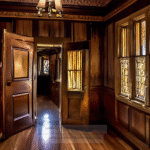Can Psychic Abilities Be Scientifically Proven, or Are They Just a Matter of Belief?
Can Psychic Abilities Be Scientifically Proven, or Are They Just a Matter of Belief?
The quest to understand psychic abilities has long fascinated humanity, straddling the line between science, belief, and the unexplained. As we delve into this compelling mystery, we confront not only the potential of the human mind but also the limitations of our scientific methodologies. This question remains vital as it impacts not only our understanding of consciousness but also the broader implications for mental health, spirituality, and the very fabric of reality itself.
Historical Context of Psychic Phenomena
Psychic abilities, often categorized under the umbrella term “extrasensory perception” (ESP), have been part of human lore for centuries. From the oracle of Delphi in ancient Greece to the fortune tellers of the Medieval period, societies have sought to connect with something beyond the tangible world. The 19th and early 20th centuries saw a surge in the study of psychic phenomena, coinciding with the rise of spiritualism. Figures such as Edgar Cayce and the Fox Sisters captivated the public with claims of communicating with spirits and predicting the future.
In 1934, the Parapsychological Association was founded, marking a more formal attempt to study these phenomena scientifically. Researchers like J.B. Rhine conducted experiments at Duke University, laying the groundwork for the field of parapsychology. Yet, despite numerous studies, psychic abilities remain controversial, often dismissed by mainstream science as pseudoscience. This historical backdrop sets the stage for modern inquiries into psychic phenomena.
Core Concepts: What Are Psychic Abilities?
Psychic abilities encompass a wide range of phenomena, including telepathy, clairvoyance, psychokinesis, and precognition. These abilities suggest a form of perception or interaction that transcends the known senses. Here’s a brief overview of the most commonly discussed types:
- Telepathy: The purported ability to read or transmit thoughts between individuals.
- Clairvoyance: The claimed ability to gain information about an object, person, or event through extrasensory means.
- Psychokinesis: The ability to move or manipulate objects with the mind alone.
- Precognition: The ability to foresee future events before they occur.
Despite the variety of claims, the central tenet of psychic phenomena is that they operate outside conventional scientific understanding, often challenging our perceptions of reality and consciousness.
Scientific Testing of Psychic Abilities
Psychic abilities have undergone numerous experimental tests, with varying degrees of rigor and scrutiny. One of the most famous studies was conducted by J.B. Rhine in the 1930s, which utilized card guessing games to test for telepathy. Rhine’s experiments suggested statistically significant results, leading to further interest in the field. However, these findings have faced criticism regarding methodology and reproducibility.
More recent studies have utilized advanced technologies, such as brain imaging and EEG, to explore the neural correlates of psychic experiences. For instance, research conducted by the Institute of Noetic Sciences has examined the physiological responses of individuals claiming psychic abilities during controlled experiments. While some studies present intriguing correlations, the scientific community remains divided, with many asserting that extraordinary claims require extraordinary evidence.
Real-World Examples: Documented Cases of Psychic Phenomena
Several documented cases have stirred public interest and debate regarding psychic abilities. One notable example is the case of Uri Geller, who gained fame in the 1970s for his alleged ability to bend spoons and perform other feats of psychokinesis. Geller’s performances were scrutinized by scientists, including James Randi, who posited that his abilities could be replicated through trickery rather than genuine psychic phenomena.
Another compelling case is that of the “Skeptical Inquirer” magazine’s investigation into the psychic claims of individuals like Doris Stokes, who purportedly had the ability to communicate with the deceased. While some individuals reported profound experiences, skeptics argue that anecdotal evidence does not constitute scientific proof.
Core Theories: Explaining Psychic Abilities
Several theories attempt to explain the existence of psychic abilities, ranging from quantum physics to consciousness theories. The “Quantum Consciousness” theory posits that consciousness itself may operate at a quantum level, allowing for phenomena like telepathy to manifest under specific conditions. Proponents argue that quantum entanglement might explain how two minds can connect without physical proximity.
Conversely, some psychologists suggest that what we term “psychic abilities” may merely be heightened intuition or pattern recognition, often misinterpreted as extrasensory perception. This perspective suggests that the human brain is capable of processing vast amounts of information subconsciously, leading to seemingly supernatural insights.
Alternative Perspectives: Skepticism and Belief
The exploration of psychic abilities often reveals a chasm between skeptics and believers. Skeptics argue that many psychic phenomena can be explained through psychological principles such as the placebo effect, confirmation bias, and cold reading techniques. They assert that belief in psychic abilities can sometimes lead to self-fulfilling prophecies, where individuals perceive outcomes that align with their beliefs.
On the other hand, believers argue that personal experiences and anecdotal evidence provide a compelling case for the existence of psychic abilities. They often cite instances of premonitions or intuitive insights that have proven accurate as validation of their beliefs. This divide highlights the complex interplay between personal experience, cultural context, and scientific inquiry.
Common Misconceptions About Psychic Abilities
Numerous misconceptions surround psychic abilities, contributing to the skepticism and controversy that often accompany discussions on the topic. One common misconception is that all psychics are frauds; while some may employ deception, many individuals genuinely believe in their abilities and have had profound personal experiences.
Another misconception is that psychic abilities are inherently supernatural or magical. Many practitioners view these abilities as an extension of human consciousness rather than something outside the realm of nature. This perspective can lead to a more nuanced understanding of human potential.
Best Practices for Investigating Psychic Phenomena
For those interested in exploring psychic phenomena, adhering to best practices for investigation can help ensure a more rigorous approach. Here are a few recommendations:
- Establish Clear Protocols: Define what constitutes a valid test or experience, including controls to eliminate bias.
- Involve Multiple Perspectives: Collaborate with both skeptics and believers to foster comprehensive analysis.
- Document Everything: Maintain detailed records of experiences, methodologies, and outcomes to evaluate results critically.
- Engage in Peer Review: Submit findings to peer-reviewed journals to encourage constructive scrutiny and validation.
Future Developments in Psychic Research
The future of psychic research appears promising, particularly as technology advances. Emerging fields like neuroimaging and artificial intelligence may provide new insights into consciousness and psychic phenomena. Researchers are also exploring the impact of meditation and altered states of consciousness on psychic experiences, potentially revealing correlations between these practices and heightened intuitive abilities.
Furthermore, the growing interest in consciousness studies may pave the way for more interdisciplinary approaches, bridging gaps between psychology, neuroscience, and spirituality. As our understanding of the mind expands, we may uncover new dimensions of human experience that shed light on the mysteries of psychic abilities.
Conclusion: The Quest for Understanding Psychic Abilities
The question of whether psychic abilities can be scientifically proven remains unresolved, reflecting a broader inquiry into the nature of consciousness itself. While historical accounts, real-world examples, and emerging theories provide intriguing insights, skepticism persists. The divide between belief and evidence continues to shape our understanding of these phenomena.
As we move forward, a balanced approach that embraces scientific inquiry while respecting personal experiences may yield the most fruitful exploration. The mystery of psychic abilities invites us to question the limits of our understanding and to remain open to the possibilities that lie beyond the known.
Other Articles
Recent Posts
- What Happened to Flight MH370? The Conspiracy Theories That Still Haunt Us
- What Secrets Lurk Within the Walls of the Infamous Trans-Allegheny Lunatic Asylum?
- What Evidence Supports the Existence of Bigfoot in the Pacific Northwest?
- What Happened to the Indus Valley Civilization? Unraveling the Mysteries of Ancient Urban Life
- Can Telepathy Be Scientifically Proven Through Laboratory Evidence?







